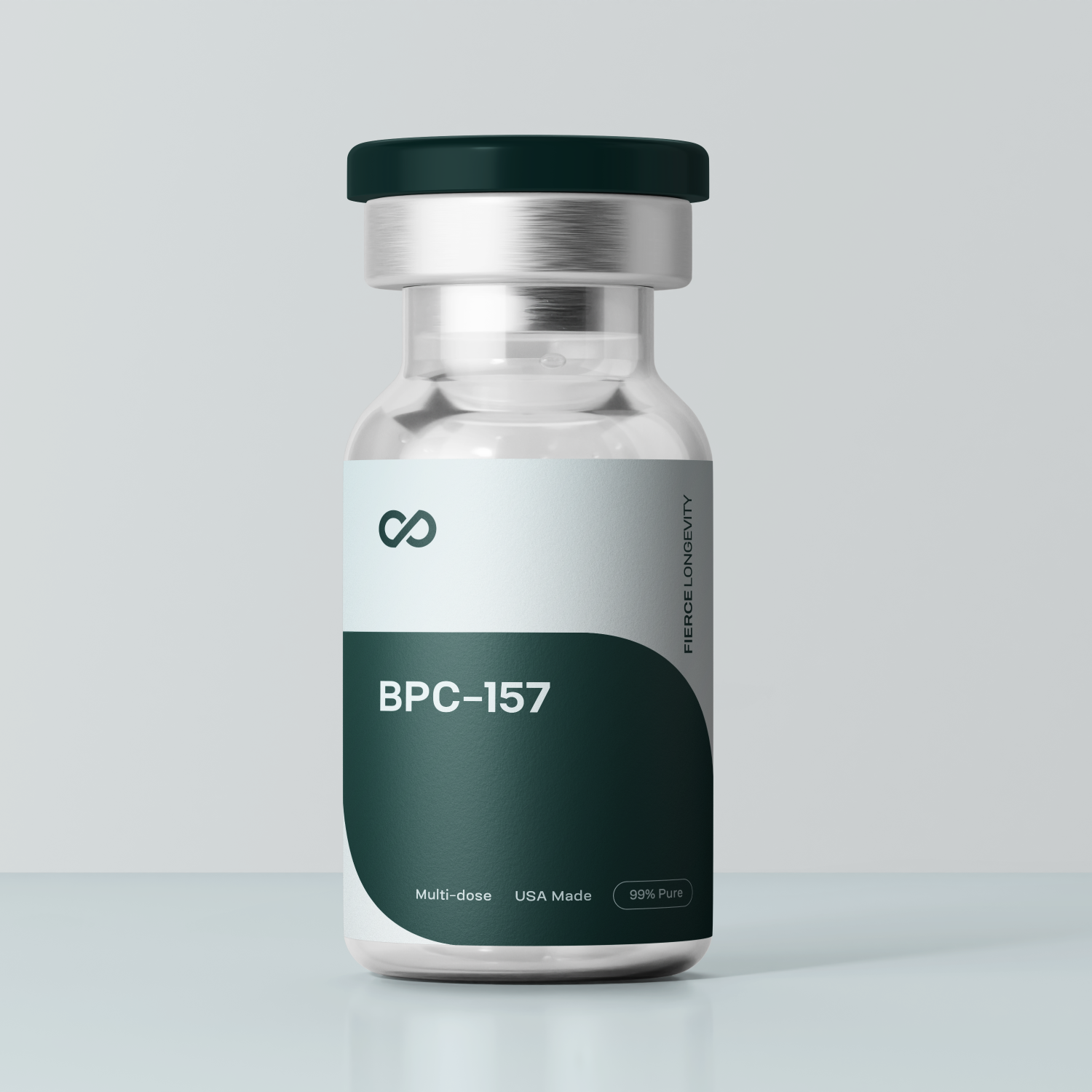
BPC-157
BPC-157 is a synthetic 15-amino-acid peptide derived from a naturally occurring gastric-juice protein, prized in laboratory models for its potent tissue repair and angiogenic signaling. In preclinical assays, BPC-157 accelerates wound closure, supports blood-vessel formation, and protects the gut mucosa—without any systemic growth-hormone activity. Each 10 mg vial is produced under ISO-certified conditions, verified ≥99% purity by HPLC, screened for endotoxin (<0.1 EU/mg), and shipped with a Certificate of Analysis for your protocols.
What's Included
- 20 Insulin Syringes (31G, 5/16”, 1cc)
- 1 Reconstitution Syringe
- 20 Alcohol Prep Swabs
- 1 Vial of Bacteriostatic Water (10 mL)
⚠️ Important Disclaimer
For Research Use Only. Not for human consumption or therapeutic treatment.

BPC-157
If you have any questions, you are always welcome to contact us. We'll get back to you as soon as possible, within 24 hours on weekdays.
-
Shipping Information
Use this text to answer questions in as much detail as possible for your customers.
-
Customer Support
Use this text to answer questions in as much detail as possible for your customers.
-
FAQ’s
Use this text to answer questions in as much detail as possible for your customers.
-
Contact Us
Use this text to answer questions in as much detail as possible for your customers.
Key Highlights
Rapid Wound Closure
In scratch-assays, BPC-157 drives fibroblast and keratinocyte migration to close gaps up to 60% faster than controls.
Enhanced Angiogenesis
Endothelial cell models show BPC-157 elevates VEGF and nitric-oxide signaling to form robust capillary networks.
GI-Mucosal Protection
In rodent ulcer models, BPC-157 reduces lesion size and preserves mucosal integrity by modulating inflammatory mediators.
Anti-Inflammatory Modulation
Macrophage and cytokine assays demonstrate BPC-157 downregulates TNF-α and IL-6, providing a tool for inflammation-resolution research.
Neurovascular Support
Preclinical stroke and nerve-injury models reveal BPC-157’s role in promoting neuro-angiogenesis and reducing neural apoptosis.
Lab-Grade Handling & Stability
Reconstitute BPC-157 in SWFI or BAC water; store lyophilized at –20 °C and keep reconstituted solutions at 2–8 °C for up to 7 days with >98% integrity.
Included in the Box
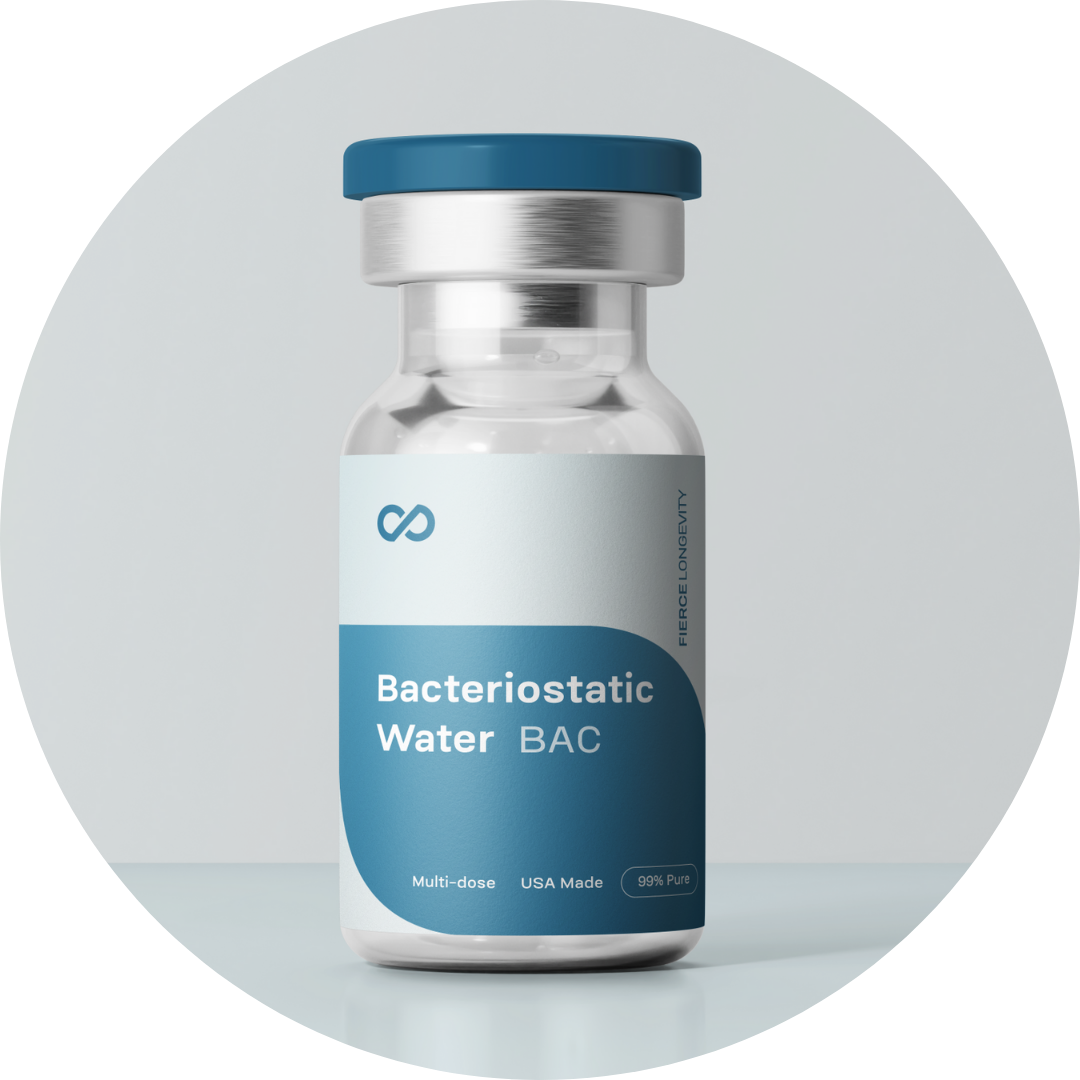
1 Vial of Bacteriostatic Water (10 mL)
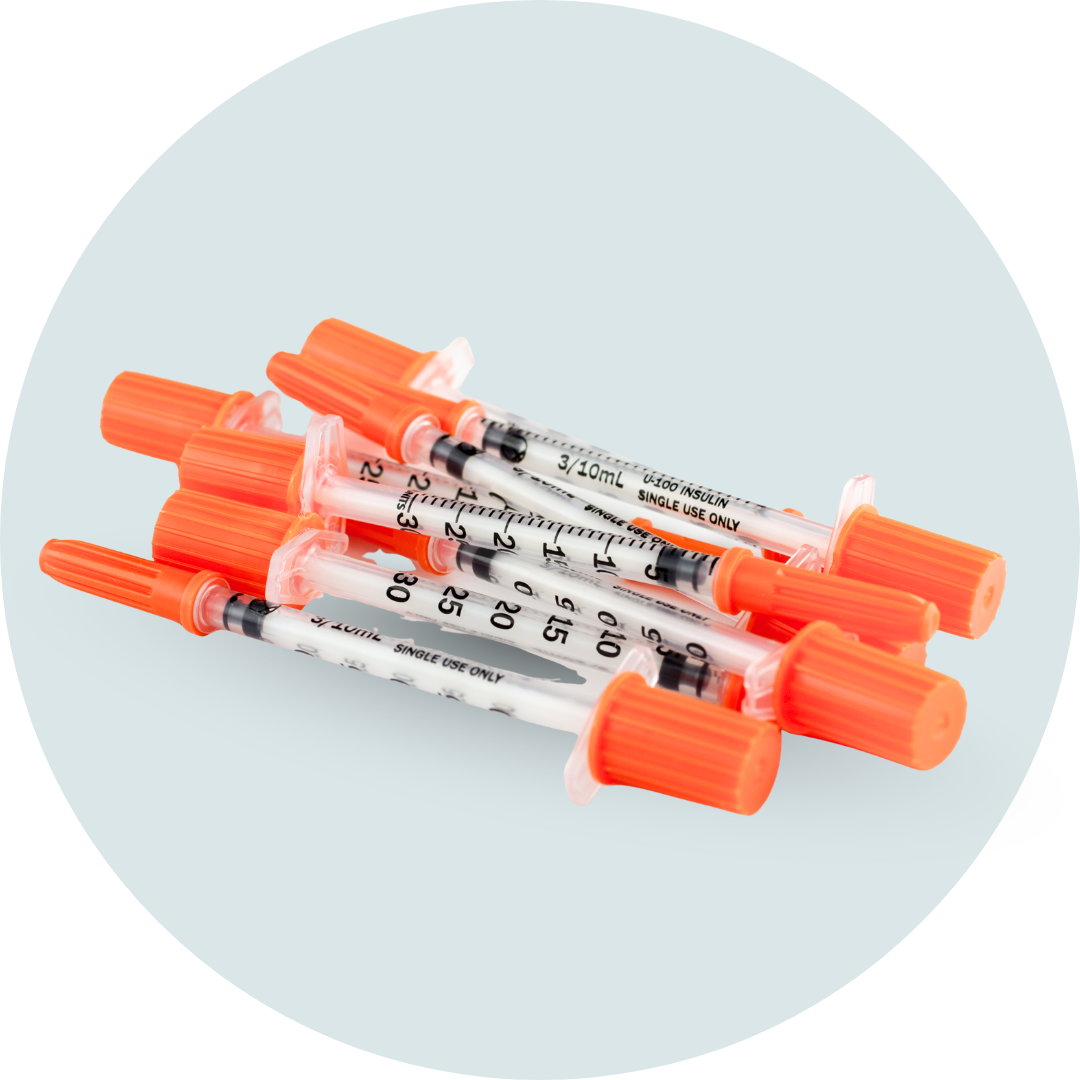
20 Insulin Syringes (31G, 5/16”, 1cc)

20 Insulin Syringes (31G, 5/16”, 1cc)
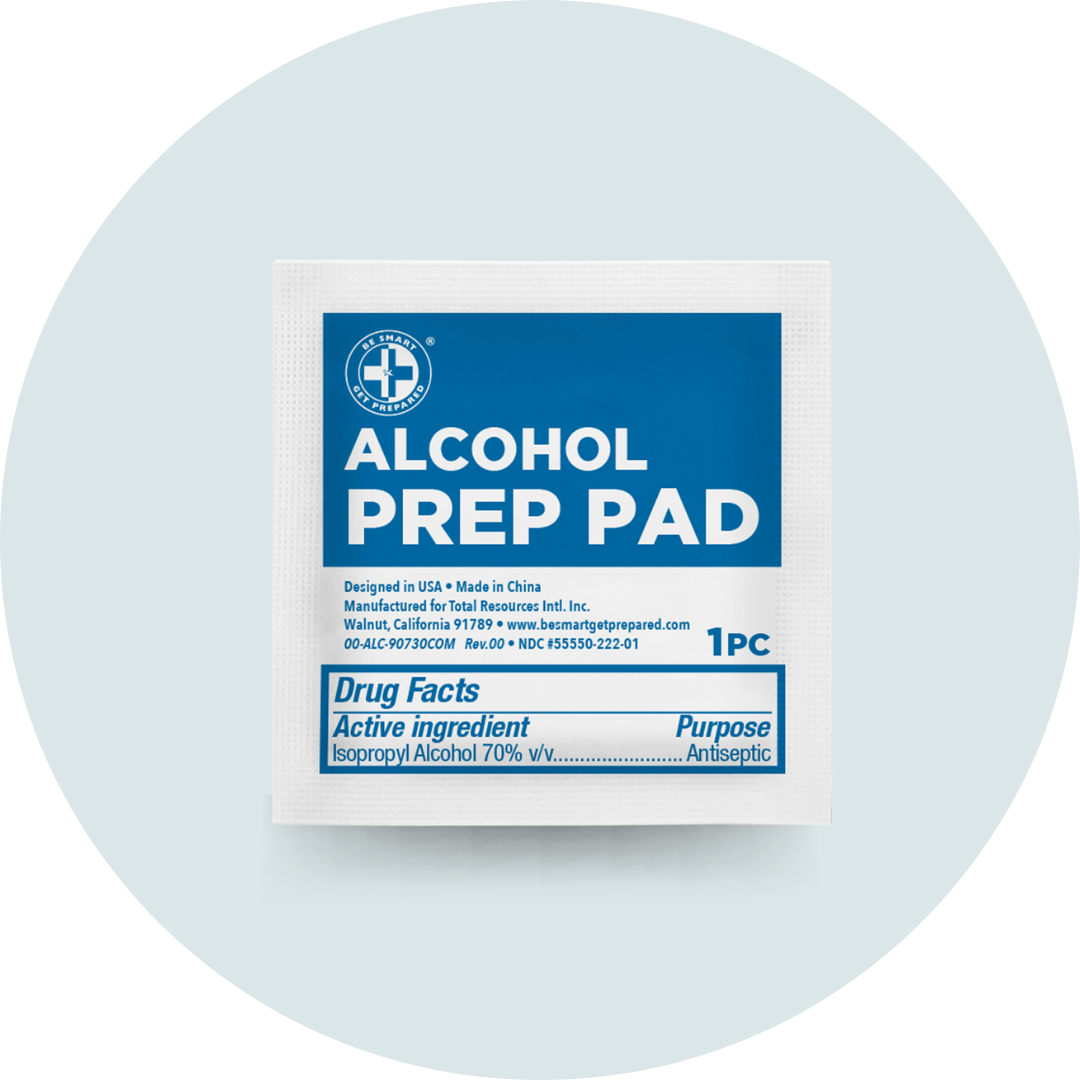
20 Alcohol Prep Swabs
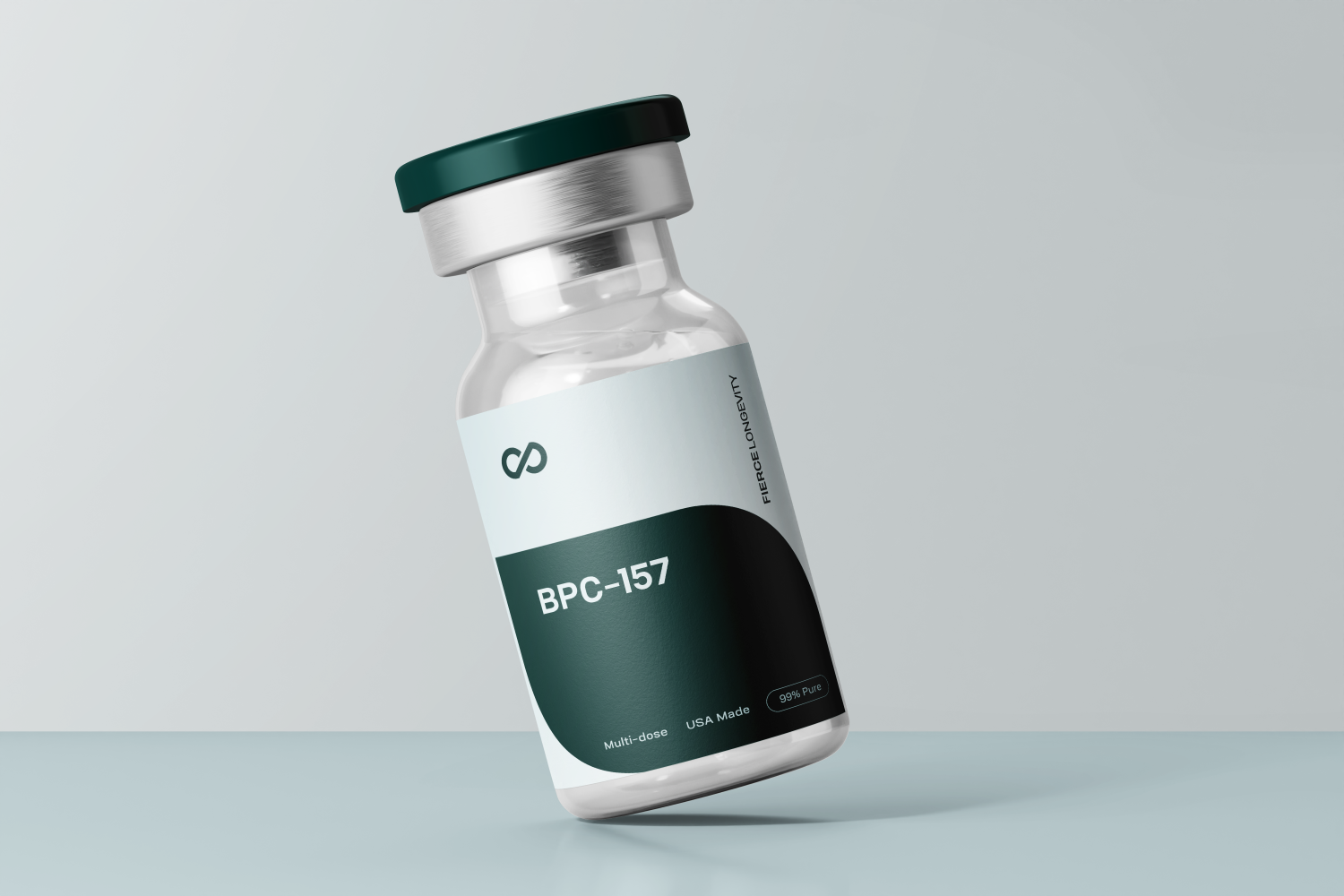
What Is BPC-157?
BPC-157 (Body Protection Compound-157) is a laboratory-synthesized pentadecapeptide modeled on a human gastric peptide fragment. It is used in cell cultures and animal assays to investigate extracellular matrix remodeling, vascular signaling, and mucosal defense. By engaging growth-factor and nitric-oxide pathways, BPC-157 offers a versatile platform for studying tissue dynamics in skin, gut, and nervous-system models.
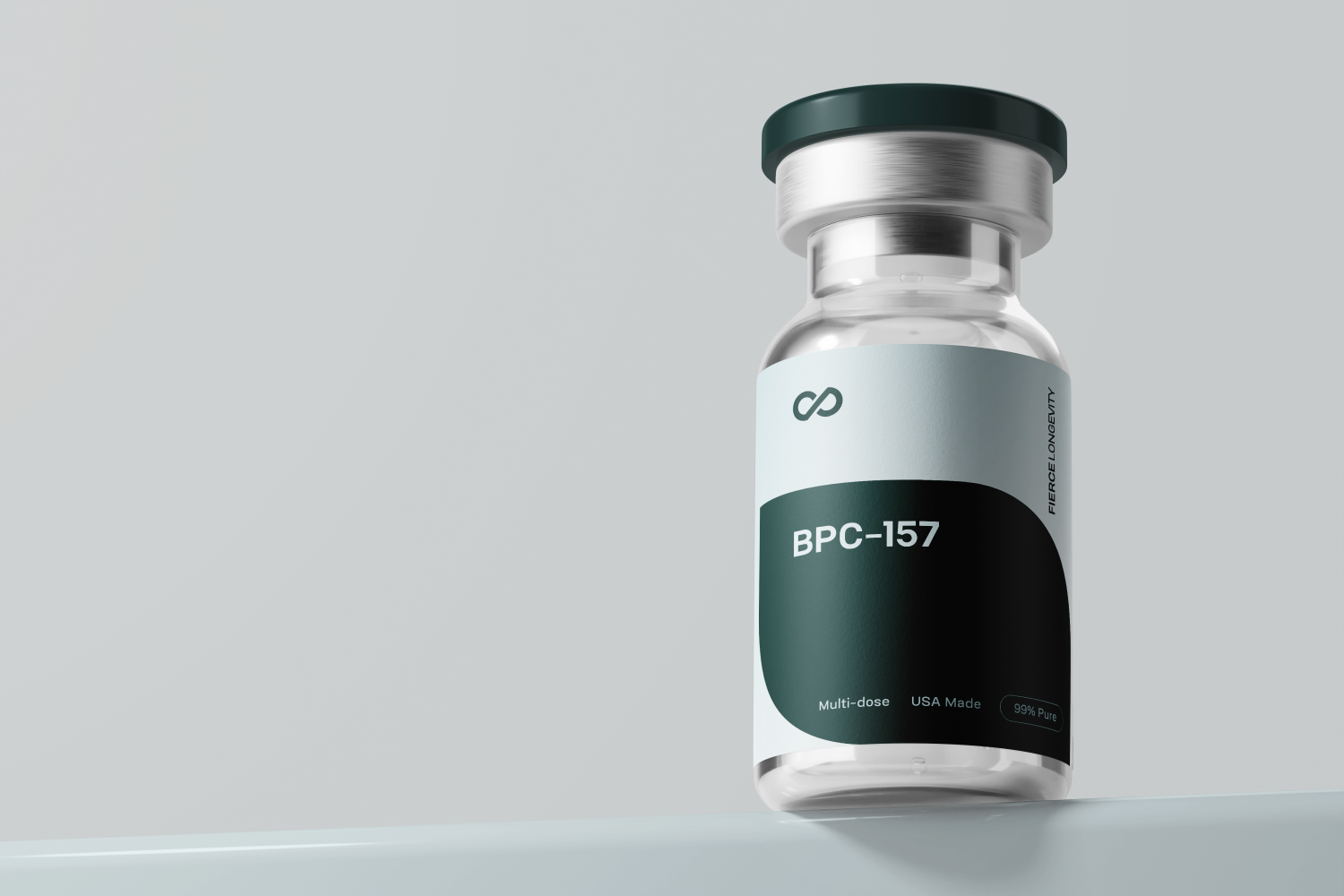
Why Choose BPC-157?
Researchers choose BPC-157 for its uniquely broad profile: it accelerates tissue repair, drives new blood-vessel formation, and protects gastrointestinal lining, all within a single peptide. Its efficacy across dermal wound-healing, ulcer-protection, and neurovascular assays has made it a staple in regenerative-medicine protocols. Manufactured in ISO-certified facilities and validated by rigorous HPLC and endotoxin testing, every vial ensures reproducible, high-quality results.
BPC-157 FAQs
What is BPC-157 peptide?
BPC-157 is a synthetic 15-amino-acid peptide used to study tissue repair, angiogenesis, and mucosal protection in lab models.
How does BPC-157 accelerate wound healing?
It promotes fibroblast and keratinocyte migration and upregulates VEGF, closing scratch-assays up to 60% faster.
Can BPC-157 protect the gastrointestinal tract?
Yes. In animal ulcer models, it preserves mucosal integrity and reduces lesion size by modulating inflammatory pathways.
What is the recommended concentration for in vitro BPC-157 studies?
Typical assay ranges span100 nM to 1 µM, adjusted per cell type and endpoint measures.
Does BPC-157 have systemic hormone effects?
No. BPC-157 operates through local growth-factor and NO signaling without affecting systemic hormone levels.
How is BPC-157 reconstituted?
Use Sterile Water for Injection (SWFI) or Bacteriostatic Water (BAC) per your lab’s SOP for precise dosing.
What storage conditions does BPC-157 require?
Store lyophilized at–20 °C; maintain reconstituted peptide at2–8 °Cand use within 7 days.
Can BPC-157 be combined with other peptides?
Yes. It’s often co-studied with TB-500, GHK-Cu, and antioxidant peptides for synergistic tissue-repair effects.
Is BPC-157 approved for human use?
No. BPC-157 is intended strictly for research use only and is not approved for therapeutic or veterinary application.
Where is BPC-157 manufactured?
Our BPC-157 is synthesized in ISO-certified U.S. labs, tested for ≥99% purity, and endotoxin-free to ensure research reliability.





